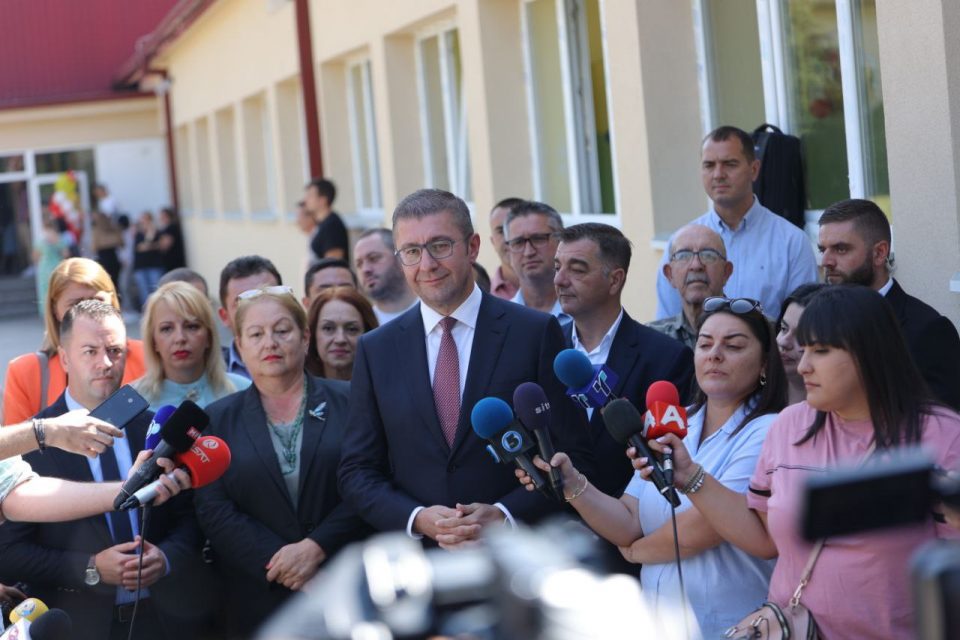Prime Minister Hristijan Mickoski emphasized on Monday that the government cannot afford to enter a one-sided process where only concessions are made without clear assurances that the country will become a member of the European Union. He pointed out that since no one can guarantee anything, the government cannot be as optimistic as it would like. As a result, the government will pursue EU membership and domestic reforms simultaneously, while remaining open to discussions.
Mickoski remarked, “From what I’ve observed in these discussions, there is some interest in advancing the region towards EU integration. Our strategic objective remains full EU membership. We support regional initiatives like the Berlin Process and CEFTA, as they help us clearly express our positions. However, our primary goal is full EU membership, something we have long deserved.” He made these comments in response to questions about potential constitutional amendments with delayed implementation, which had been discussed with European officials.
The Prime Minister highlighted that constitutional amendments with delayed implementation could be a viable solution, but only if there is a firm guarantee of full EU membership.
“This could be one of the solutions, but only if there’s a clear guarantee that we’ll achieve full EU membership within the time frame promised in 2018, which was four to five years. Our government will work diligently to make the negotiations successful. But as things stand, no one can guarantee us anything. Given this uncertainty, we can’t be as hopeful as we’d like, which is why we’ll work on both EU membership and our domestic reforms concurrently. We’ll focus particularly on the domestic reforms that depend solely on us. If an opportunity for dialogue arises, we’re ready to engage,” Mickoski reiterated.
He also addressed the recent closure of the Centre for the Macedonian Language in Greece, stating that the government would provide logistical support but would avoid getting entangled in Greece’s internal political issues.
“This situation is another example that we are the only ones committed to good neighborly relations. But this won’t deter us. I understand they may try to provoke us into reacting in ways that don’t align with our interests, particularly our goal of full EU membership. Our partners in the EU can see that our neighbors are not adhering to agreed commitments, even though they might try to justify their actions as court decisions. We will support our citizens there as they pursue their rights, including through logistical assistance and possibly involving the European Court of Human Rights. We won’t respond as we might have in the past. We’re aware that our neighbors might attempt to draw us into their internal political debates and make Macedonia a focal point, but we will remain responsible and mature. We have our goals and interests and will continue to pursue them,” Mickoski stated.
This follows a recent decision by the Appellate Court in Kozani, Greece, to revoke the registration of the Centre for the Macedonian Language in Florina. The Centre’s activists have vowed to use all available legal avenues, including appealing the decision to the Greek Supreme Court and the European Court of Human Rights in Strasbourg.
The Centre was initially approved by a Greek court in 2022 as a nongovernmental organization dedicated to preserving the Macedonian language. It was the first officially recognized organization by Greek authorities that directly promotes the Macedonian language within the country. In March 2023, the Primary Court in Florina dismissed multiple attempts to overturn the original decision allowing the Centre’s registration.





Comments are closed for this post.